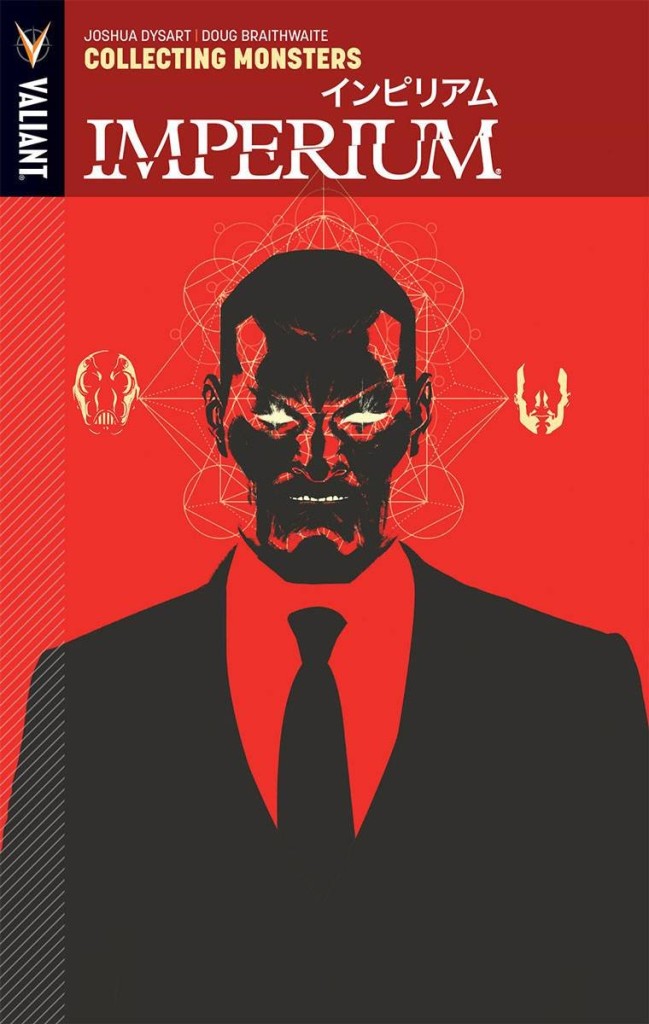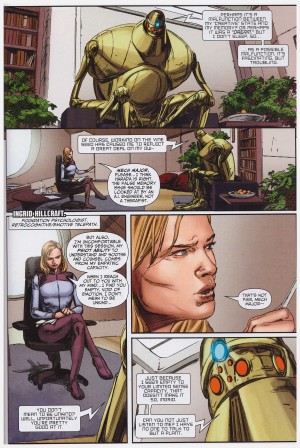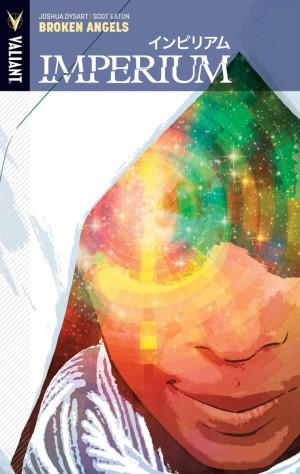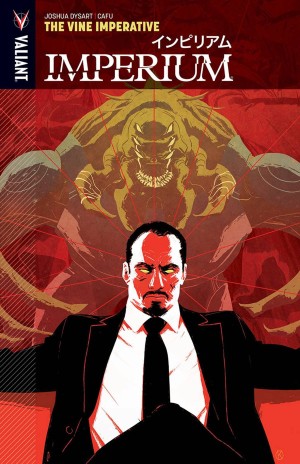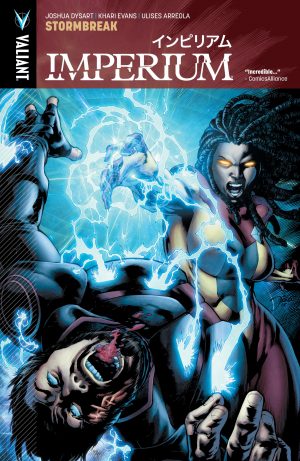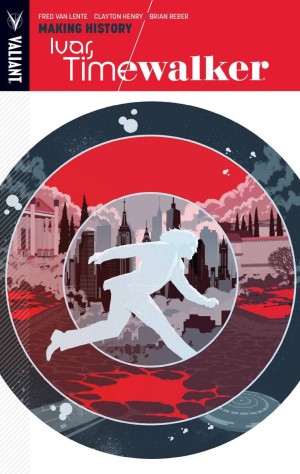Review by Karl Verhoven
Toyo Harada was introduced in Harbinger as the first telepathically active human on Earth, and progressed from there to develop a whole range of formidable mental abilities. His objective was to activate others like him, but in attempting to usher in an age of global harmony he provoked the wrong person, and was outed as something other than a philanthropic businessman. This occurred in Harbinger: Death of a Renegade.
Imperium opens with a glimpse of the glorious world built by humanity uniting and adopting Harada’s vision, but we then drop back into the present day and Harada’s Plan B. This involved occupying a portion of Somalia, setting up there as a sovereign nation, and gathering others with mental abilities, known as psiots, around him.
As a series Imperium is very much integrated with events occurring in other Valiant titles, although not to the point of incomprehension. While every issue centres around Harada or his activities in some respect, he’s not the sole protagonist. We drop in, for instance, on members of H.A.R.D. Corps, tasked with bringing Harada down, or the various allies Harada has, each taking a turn at narrating a chapter.
Joshua Dysart’s scripting is very effective in maintaining this wide focus, constantly introducing fascinating ideas (as befits a title featuring the smartest man on the planet), and jumping from one location to another. Several other-worldly cast members feature, and all fascinate. There’s a leftover Vine alien from the X-O series, a self aware artificial intelligence in a robot body, and a scientist “borrowed” by another form of alien entity.
Dysart also scatters pithy bon mots throughout, be it child psiot converts quoting Harada “Harada says: To build a bomb is to drop a bomb”, or the alien who’s possessed a scientist “In exchange for passage and access I will build something your species has dreamed of, but is far from achieving”. Intrigue is central to the scripts. Given the abilities in play there are very few cast members who can be taken at face value.
All this requires an adaptable artist, and in Doug Braithwaite there’s an excellent storyteller. There’s little flash about his pages, but there’s never anything you don’t understand, nor is there ever tedious repetition, no matter how many pages a conversation might take. It’s a shame, as per Valiant policy, he’s not around for volume two, Broken Angels, as something big appears to be brewing.
